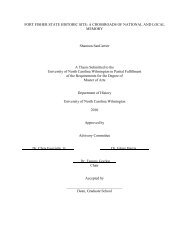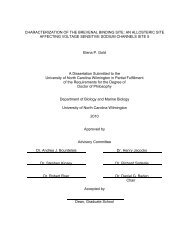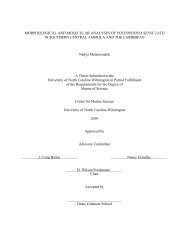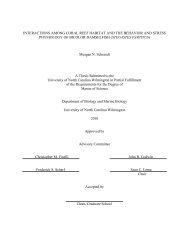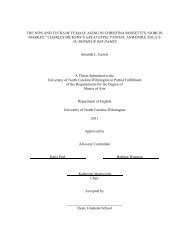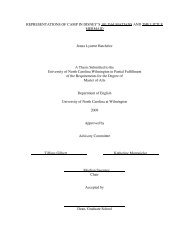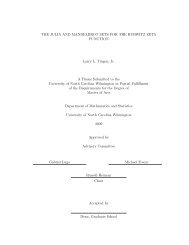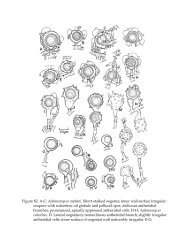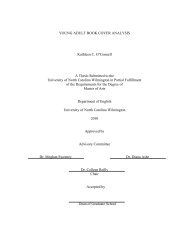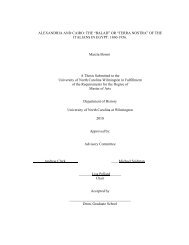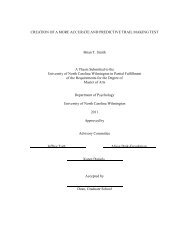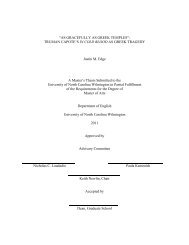AN AUGURY OF REVOLUTION: THE IRANIAN STUDENT ...
AN AUGURY OF REVOLUTION: THE IRANIAN STUDENT ...
AN AUGURY OF REVOLUTION: THE IRANIAN STUDENT ...
Create successful ePaper yourself
Turn your PDF publications into a flip-book with our unique Google optimized e-Paper software.
and collective confrontation of illegitimate authority,” in the 1960s were “unlikely to have much<br />
effect on American policy.” 6<br />
Iranian students did have an effect on American foreign policy in the early years of the<br />
1960s. Kennedy did not view the shah’s regime favorably, and many in the administration were<br />
receptive to the opinions of Iranian students in the United States. However, Lyndon Johnson<br />
drastically reversed the policies and attitudes of the Kennedy era, and the Nixon administration<br />
escalated the level of cooperation between Washington and Tehran that began during the<br />
Johnson administration. The decisions made by Richard Nixon and Henry Kissinger in May<br />
1972 were the culmination of an American policy toward Iran that had been developing for<br />
nearly a decade. Instead of a conservative reaction to the Iranian student movement, this policy<br />
was Realpolitik put into action. The Nixon administration viewed the world as a “single strategic<br />
theater” upon which it desired to forge alliances with world leaders that it believed would<br />
provide the best opportunities for American-defined stability. 7<br />
Washington believed that the<br />
shah could provide this stability, and ignored the plight of the citizens and students of Iran in<br />
favor of a ruler who supported American interests. The disconnect between the Iranian people<br />
and the shah led the Pahlavi regime to collapse with remarkable speed, increasing instability in<br />
the region that was to last into the twenty-first century.<br />
The Iranian student movement abroad was indicative of the growing unrest among the<br />
intelligentsia, but both Washington and Tehran downplayed its significance. Leaders in<br />
Washington and Tehran should have been aware of the historical role that the intelligentsia has<br />
played in the modern Middle East. There were thriving Ottoman exile communities in Paris and<br />
6 Maurice Isserman and Michael Kazin, America Divided: The Civil War of the 1960s (Oxford University Press,<br />
2004), 188.<br />
7 “The Modern World, A Single ‘Strategic Theater,’” 29 September 1969, attachment to Memorandum from<br />
Kissinger to Nixon, “A Strategic Overview,” undated, FRUS 1969 – 1976, Volume I, Foundations of Foreign Policy<br />
1969-1972 (Washington: U.S. Government Printing Office, 2003), 111.<br />
5



